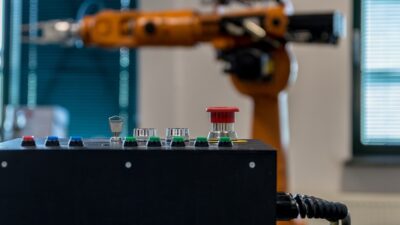The advent of artificial intelligence (AI) and data science has triggered a paradigm shift in various industries, and healthcare is no exception. As the demand for efficient, cost-effective, and personalized healthcare solutions rises, the integration of AI and data science is becoming increasingly vital. This article explores how these technologies are reshaping the healthcare landscape, enhancing patient outcomes, streamlining operations, and facilitating groundbreaking innovations.
The Data Revolution in Healthcare
The healthcare sector has always been a data-intensive industry, generating vast amounts of information daily. From Electronic Health Records (EHRs) and medical imaging to genomics and patient wearables, healthcare data comes from various sources. Data science applies mathematical and statistical methods to extract meaningful insights from this colossal amount of data, allowing healthcare providers to make informed decisions.
Predictive Analytics
One of the most transformative applications of data science in healthcare is predictive analytics. By leveraging historical data, machine learning algorithms can forecast patient outcomes, predict disease outbreaks, and identify at-risk populations. For instance, predictive models are being developed to anticipate hospital readmissions, enabling healthcare providers to implement preventive measures and tailor treatment plans, ultimately improving patient care and reducing costs.
Personalized Medicine
The era of one-size-fits-all medicine is waning, thanks in large part to advancements in data science. With the integration of genomics, proteomics, and other biological data, healthcare providers can develop personalized treatment plans that cater to individual patients’ unique genetic profiles. AI algorithms analyze vast datasets to identify patterns and associations, facilitating the discovery of targeted therapies that promise better efficacy with fewer side effects.
Enhanced Imaging and Diagnostics
AI is revolutionizing medical imaging and diagnostics. Advanced algorithms can analyze medical images such as X-rays, CT scans, and MRIs with remarkable accuracy. These AI-driven tools can assist radiologists by highlighting anomalies that might be missed by the human eye, significantly improving diagnostic accuracy and reducing the time taken for analysis. The integration of AI in pathology also enables quicker identification of diseases, such as cancer, facilitating timely interventions.
Operational Efficiency
In addition to enhancing patient care, AI and data science are streamlining healthcare operations. Administrative tasks, such as scheduling, billing, and patient management, can often be cumbersome and time-consuming. AI solutions can automate these processes, allowing healthcare professionals to focus more on patient care rather than paperwork. This not only increases operational efficiency but also enhances the overall patient experience.
Telemedicine and Remote Monitoring
The COVID-19 pandemic accelerated the adoption of telemedicine, and data science is a crucial component of its success. AI algorithms analyze patient data in real time, helping healthcare providers monitor chronic conditions remotely. This not only empowers patients to take charge of their health but also enables providers to intervene promptly when issues arise, minimizing the need for in-person visits and conserving healthcare resources.
Challenges and Ethical Considerations
While the potential benefits of AI and data science in healthcare are significant, challenges and ethical considerations must be addressed. Data privacy concerns, algorithmic bias, and the need for transparent AI systems are critical issues that require careful consideration. It is essential for healthcare stakeholders to collaborate in establishing regulatory frameworks that ensure patient safety and equitable access to AI-driven solutions.
Conclusion
The fusion of AI and data science is undeniably reshaping the healthcare landscape, offering unprecedented opportunities for innovation, efficiency, and improved patient care. As these technologies continue to evolve, they hold the promise of a future where healthcare is more proactive, personalized, and accessible. Embracing this transformation requires not only technological advancement but also a commitment to ethical practices and patient-centric approaches. By harnessing the power of AI and data science, the healthcare system can navigate the complexities of modern medicine, ultimately leading to healthier populations and a more sustainable, efficient industry.



